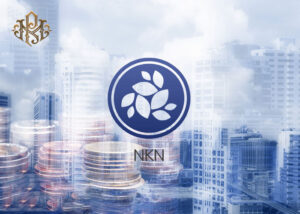
Close



What is NKN digital currency? In the field of blockchain technology and decentralized networks, NKN (New Kind of Network) has emerged as a pioneering project that aims to revolutionize the way we think about communication and connectivity. At the heart of the NKN ecosystem is its native digital currency, NKN Digital Currency, which serves as a means of exchange and participation in the network. This article aims to provide an in-depth exploration of the NKN cryptocurrency, clarifying its origins, features, uses, and groundbreaking NKN project.
NKN, or New Kind of Network, was designed with a bold vision, creating a decentralized, open-source protocol for creating peer-to-peer communication networks. Founded by a team of experienced entrepreneurs and technologists, NKN aims to democratize access to communications infrastructure and create secure, efficient and censorship-resistant connectivity. Using blockchain technology and incentive mechanisms, NKN seeks to empower individuals and organizations to participate in the global communication network, free from central control or manipulation.
At its core, NKN is guided by several key principles that underpin its philosophy and approach:
Decentralization: NKN is built on decentralized principles and no single entity or authority controls the network. Instead, NKN relies on a distributed network of nodes to deliver messages, route traffic, and maintain network integrity.
Incentives: NKN uses a new incentivization mechanism called Proof of Relay (PoR) that rewards network participants for transferring data and providing bandwidth. NKN aims to create a self-sustainable and resilient communication network by incentivizing node operators with NKN cryptocurrency rewards.
Security: Security is paramount in the NKN ecosystem, with strong encryption, authentication, and privacy features that ensure the confidentiality and integrity of communications. NKN uses advanced encryption techniques to protect user data and thwart possible attacks.

The NKN digital currency acts as the native digital currency of the NKN ecosystem, facilitating transactions, encouraging network participation, and enabling the transfer of value across the network. NKN tokens were initially distributed through a public token sale event, during which participants could receive tokens in exchange for cryptocurrency or fiat currency. Subsequently, NKN tokens can be traded on various cryptocurrency exchanges, allowing users to freely buy, sell and transfer them.
NKN cryptocurrency plays an important role in the NKN ecosystem and offers a wide range of tools and functions:
Network Participation: NKN tokens are used to incentivize network participation, with node operators earning rewards in NKN cryptocurrency for transferring data and providing bandwidth.
Payment: NKN tokens can be used as a medium of exchange for goods and services in the NKN ecosystem, allowing users to pay for communication services, decentralized applications (dApps) and other network resources.
Governance: NKN tokens entitle holders to participate in the governance of the NKN protocol, enabling them to vote on proposals, protocol upgrades, and other governance decisions.
NKN digital currency is designed to be interoperable with other blockchain networks and protocols, enabling seamless integration with external platforms and assets. This interoperability expands the utility and liquidity of NKN tokens, allowing them to be used in conjunction with other cryptocurrencies, decentralized exchanges (DEX), and decentralized financial protocols. Through strategic partnerships and collaborations, NKN aims to create a vibrant and interconnected ecosystem of blockchain projects and applications.

At the core of the NKN project is its innovative technology stack, which includes several key components:
NKN Blockchain: The NKN Blockchain acts as the backbone of the network and provides a decentralized ledger for recording transactions, smart contracts and governance decisions. Built on a unique consensus mechanism known as Proof of Relay (PoR), the NKN blockchain enables secure, scalable and efficient communication.
NKN nodes: NKN nodes form the network infrastructure layer, transferring data, routing traffic and providing bandwidth to support communication services. Node operators are rewarded with NKN tokens for their participation in the network.
NKN Clients: NKN clients are software programs that use the NKN protocol to enable peer-to-peer communication and connectivity. From messaging apps and file sharing tools to IoT devices and edge computing platforms, NKN clients allow users to harness the power of decentralized networks.
Scalability and adoption remain key challenges for the NKN project as it seeks to grow its network and user base. With the expansion of the ecosystem, the scalability of the infrastructure, increasing the network capacity and attracting new participants become increasingly important. By investing in technology development, NKN aims to reach out to the community and educate users on these challenges and wide acceptance of its platform and digital currency.
Navigating the regulatory landscape presents another challenge for the NKN project, as it operates in a highly regulated industry. Ensuring compliance with laws, regulations and licensing requirements requires close scrutiny and continuous monitoring. Working with regulators, legal experts and industry stakeholders, NKN aims to create a regulatory environment that promotes innovation while protecting the interests of users and participants.
As a result, NKN digital currency represents a new paradigm in decentralized communication and connectivity, offering a new approach to creating peer-to-peer networks. With its innovative technology, robust infrastructure and native digital currency, NKN is poised to innovate, foster collaboration and empower individuals and organizations around the world. As the NKN ecosystem continues to evolve and expand, NKN digital currency plays a central role in facilitating transactions, encouraging network participation, and creating value in the network.